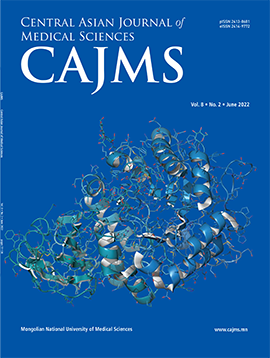Alterations in Interleukin-6 and Other Parameters during Open-Heart Surgery
DOI:
https://doi.org/10.24079/cajms.2017.01.010Keywords:
Inflammatory Response, Cardiopulmonary Bypass, Cytokines, InterleukinsAbstract
Objectives: Cardiopulmonary bypass (CPB) using a heart-lung machine to perform open-heart surgery is known to be associated with numerous pathophysiologic changes in body systems. Soon after beginning extracorporeal circulation, an activation process of certain plasma protein systems occurs as blood contacts the foreign surfaces of the cardiopulmonary bypass circuit. During cardiac surgery with CPB, there is a systemic inflammatory reaction involving an enhanced release of inflammatory cytokines. In this study, we investigated the occurrence of systemic inflammatory response syndrome (SIRS) and the mechanisms that lead to the protraction of SIRS in patients who are operated under CPB. Methods: Blood samples from 27 patients (12 females and 15 males, aged 18-63 years) who underwent CPB were collected before and at several time points after surgery and analyzed for plasma levels of proinflammatory cytokines and white blood cells (WBC). Results: In patients with SIRS, the duration of CPB, interleukin-6 (IL-6) count, and WBC count after aortic declamping were significantly higher. The occurrence of SIRS was significantly correlated with the highest recorded level of IL-6 (OR 1.01, 95% CI 1.00-1.01, p<0.05) and the duration of CPB (r = 0.578, p<0.001). Conclusion: The study findings suggest that the duration of CPB and cytokinemia characterized by high IL-6 levels may play an important role in the development of the SIRS.
Downloads
210
Downloads
Published
How to Cite
Issue
Section
License
Copyright (c) 2017 Mongolian National University of Medical Sciences

This work is licensed under a Creative Commons Attribution-NonCommercial 4.0 International License.




